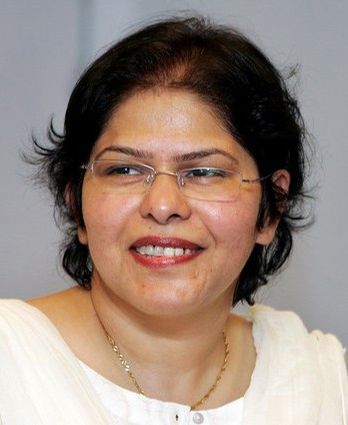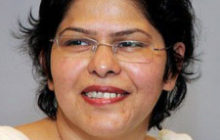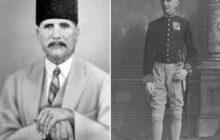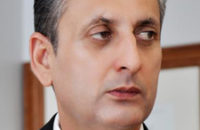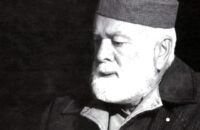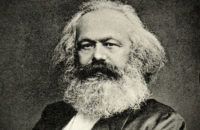Pakistan’s army chief, General Qamar Bajwa was recently in London to meet his counterpart and many other bigwigs of the security establishment of the UK ostensibly to discuss issues of strategic cooperation. However, the visit – his second in nine months – was more than the usual tête-à-tête.
If anything, there were four objectives of the tour: find a via-media to improve relations with the US that would relieve the immediate financial pressure on Pakistan; reduce pressure of poor India-Pakistan relations from the latter; recruit the British government to play the role of a strategic intermediary, and use London as platform to convince the international community that the general could do the job of turning Pakistan around, especially as far as delivering Taliban to the American negotiation table and cleaning the country of jihadis, and peace with India was concerned.
After all, even after Kargil, Pervez Musharraf understood that a comprehensive dialogue could be had then, why can’t Bajwa do the same? The difference is that Musharraf had the longevity of tenure on his side, Bajwa doesn’t. London is abuzz with rumours of a year’s extension, which may not be enough to turn things around. A new chief would come with his own ideas.
While private conversations were held with the British national security adviser and Prime Minister Theresa May’s special representative for Afghanistan and Pakistan, the army chief also addressed a larger audience of over a hundred people in an off-the-record meeting at the International Institute for Strategic Studies (IISS).
General Bajwa had good news for his audience – the army was committed to putting an end to all militants, a target that would be better achieved once the newly elected (popularly known as “selected”) Imran Khan government settled down in its job. The general also expressed his intention to talk peace with India for which, he claimed he was not in a hurry but was willing to let the Modi government come around to the idea of peace at its own pace. The interesting part of the entire show was that he had the British believe that he means business just like Pervez Musharraf did. It could be that faced with the grim prospects of Brexit, the British bureaucracy feels it has a chance to create a legacy of brokering peace between India and Pakistan.
The emerging understanding in London is that financial pressures may have awoken the army leadership to the need to change its attitude. Something has certainly happened in speeding up the Afghan peace process; Ashraf Ghani’s visit to Islamabad, Pakistan government facilitating a round of talks between Kabul and Taliban at the hill resort in Murree, and increased possibility of an Imran Khan-Donald Trump meeting in July this year.
So, will Bajwa apply his new perspective on India as well? Post-London, Pakistan’s army chief spoke at his military university about the need for regional connectivity.
There are two issues here – timing and intent.
The possibility of a shift in attitude depends on how consistent and hard the pressure from outside is. Bringing about a fundamental shift in thinking towards New Delhi at a time when India is changing itself to become more ideological means Pakistan will need greater clarity about its future goals and how it wants to build itself regionally. It will also require consensus amongst domestic stakeholders. What we have learnt from the Musharraf episode in the past is that while Delhi couldn’t reach out to the Pakistani general on time, there was also a lack of consensus in Pakistan regarding the outcome. It was after Musharraf left that his generals started to speak about how they did not see eye-to-eye with his Kashmir formula.
Selling the idea of peace-with-India inside the military’s corridors is not easy – back then or now. For one, it is a new India where minority relations will continue to raise concerns. Moreover, given the consistent propaganda about this new India in Pakistan, where every dissenting voice is viewed as funded by RAW against Pakistan’s interests, the general’s claim to be open about relations with India is nothing but fallacy. While General Ashfaq Parvez Kayani was popular for supporting trade with India, he left no stone unturned to ensure that it wouldn’t happen. One of the reasons for pushing Nawaz Sharif out was the army’s concern that the prime minister would encourage trade and normalisation of relations with neighbours. The Europeans are certainly unable to understand the logic but the fact is that any evidence of change in the attitude of Pakistan’s army will start with how they treat domestic stakeholders.
Despite feeling hopeful, the British at least understand that improving ties will also call for some progress on the Kashmir issue. The perception is that since the present movement in Kashmir is operationally indigenous, the Indians could be convinced to return to the Musharraf Kashmir formula in return for an end to Pakistan’s jihad policy. General Bajwa, it is believed, would take action against the jihadis to be verified by a third party. For instance, the CIA or MI6 will verify a rumour of JeM’s Masood Azhar getting injured or killed. Of course, the underlying assumption is that western intelligence capacity has increased from the days when they could not find Osama bin Laden in Abbottabad. It took a Pakistan army officer, who now lives comfortably in California, to walk into the US embassy and spill the beans.
A third party verification of this kind is a complex idea especially when all voices inside are being silenced. The fact that General Bajwa lost his cool at the mention of the Pashtun Tahafuz Movement (PTM) is not just because he genuinely thinks, as he claimed in his response, that PTM is an extension of the TTP (Tehrik-i-Taliban Pakistan) or that it is a Western/Afghan conspiracy, but because the movement exposes the lack of progress on the Taliban. The British may consider the Pakistani voices and civil society irrelevant but the Indians would ignore it at their own peril.
It is not that General Bajwa doesn’t know that changing attitude regarding India is not a decade-long project, at least. His hurry to start talks as demonstrated by keenness to open upthe Kartarpur corridor is tactical, not strategic.
Unlike Musharraf, Bajwa is not out there to create a legacy for himself but to buy time for the army to get back on its feet vis-à-vis the US. He understands that improvement of the Pakistan-US bilateral relations partly depends on Washington not seeing Islamabad from Delhi’s lens.
Bajwa also seems willing to play the long game of engagement with the US, which is why in London he insisted that Pakistan was more naturally inclined towards the West than China. He had said the same even during his visit of October 2018. The fact that Pakistan’s intelligence is allowing media to print stories about the sorry state of Pakistani women in China or the fact that Islamabad is not signing off its copper treasures to Beijing is not a strategic shift in relations but signaling to the US. Improving ties with Washington, it is hoped, could convince the world that while Rawalpindi is ready to change, it is India that must mend its ways. China, on the other hand, has its fate tied with Pakistan due to BRI.
General Bajwa is certainly happy to play the intense game of nerves. Question is if he can take his men along, will Delhi play its own game, or Donald Trump’s, in case Bajwa can stay on for another year?
The author is a research associate at the School of Oriental and African Studies, London and author of Military Inc. Views are personal.

